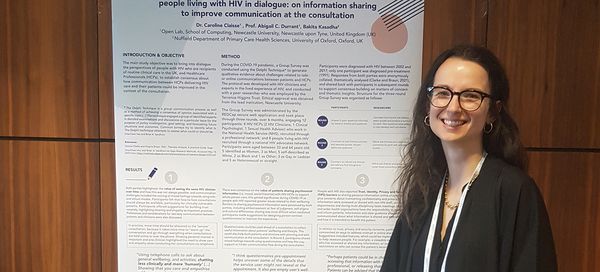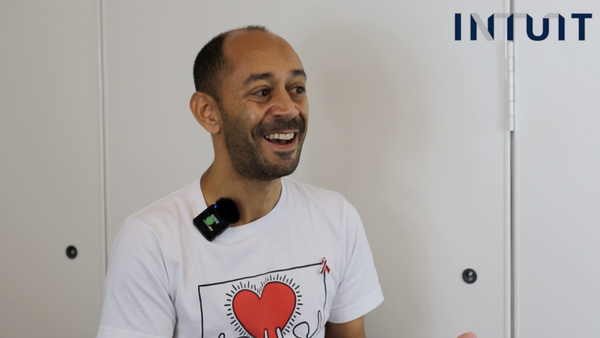News
World AIDS Day 2021: Understanding HIV as a treatable condition
World AIDS Day (WAD) takes place annually on 1 December and is a global day that raises awareness of Human Immunodeficiency Virus (HIV). HIV is a virus that attacks the immune system and over time, weakens it. If left untreated, it can cause Acquired Immune Deficiency Syndrome (AIDS). WAD provides opportunities to show support for people living with HIV whilst also remembering the lives we sadly lost to AIDS-related illnesses. This year marks 40 years since the first AIDS diagnosis and, whilst there may be no cure for HIV, there is treatment available in the form of antiretroviral therapy. Being on treatment means being able to live a long and healthy life without worrying about passing on the virus.
#UequalsU: Undetectable equals Untransmittable
In the UK, treatment is freely available through the NHS along with free HIV-related clinical care. There are currently 105,200 people living with HIV in the UK of which 94% are aware of their HIV diagnoses, 98% are on treatment, and 97% of those who are on treatment, have an undetectable viral load (PHE, 2020). Having an undetectable viral load and its positive impact on health and wellbeing has resulted in several campaigns highlighting #UequalsU which means Undetectable equals Untransmittable and emphasises what we know about the benefits of treatment: living a long and healthy life whilst not worrying about passing on the virus.
Knowledge of #UequalsU has helped empower people living with HIV to not only make sexual and reproductive health choices that are right for them, but also to live and age well. Eyes Open, a steering group based in the North East that raise awareness of HIV and support World Aids Day, are actively promoting this message:

Address HIV Stigma and Improve Quality of Life to Live Well
Despite #UequalsU, people living with HIV have reported lower levels of Quality of Life when compared to the general population. For example, findings from the Positive Voices 2017 survey highlight that people living with HIV reported lower levels of ‘life satisfaction, self-rated health, and health-related Quality of Life’ especially when compared to the general population. Further findings highlight that for some people living with HIV, they experienced mental ill-health, had other long-term health conditions, experienced housing and employment concerns as well as stigma.
This is something that we’ve been informed of through conducting research with individuals who have lived experience of HIV, as part of the EPSRC-funded INTUIT Research Project: https://intuitproject.org/. Our team includes researchers at Newcastle University’s Open Lab and the Terrence Higgins Trust, partnering with HIV Charity Blue Sky Trust and Eyes Open in the North East region. Throughout the INTUIT research programme, we’ve gained first-hand insights into the lived experiences of HIV and have become aware of how Quality of Life can be adversely impacted by experiences of HIV-related stigma.
What is HIV-related stigma? The UNAIDS defines stigma as a process of devaluing people living with HIV or AIDS or anyone associated with either condition. There are different types of HIV-related stigma; some forms of stigma are related to perceptions of how others behave, or anticipating how people may behave; stigma can also be experienced in social relationships, reflected in how a person is treated by others; and sometimes stigma is felt within the individual, in their own mind and may be related to understanding their own identity or managing inner conflict. On their own and collaboratively, these forms of stigma can have adverse implications resulting in poorer physical and mental health outcomes along with reduced Quality of Life. Sadly, stigma stems from outdated beliefs and misconceptions about HIV.
Earlier this year, The National Aids Trust and Fast Track Cities published findings from a study looking into the UK population’s knowledge of and attitudes about HIV. The study surveyed 3000 people and held 6 focus groups. Findings highlight that HIV remains highly stigmatised and misunderstood. It also highlights a lack of awareness around HIV transmission and what it really means to be living with HIV in 2021. This emphasises that there is a lot more work to be done as we need to help educate and empower individuals and in doing so, we not only challenge stigma but we can look to eradicate it. Terrence Higgins Trust advise that if a person is sexually active, they should test for HIV at least once a year. If a person is diagnosed with HIV, they can start treatment which means they won’t be able to pass the virus on to anyone else sexually and they can live a long and healthy life. Sound familiar? #UequalsU.
The INTUIT research focuses on understanding the experience of managing HIV as a long-term condition, and managing HIV treatment as part of managing well-being and self-care. This work has shown the importance of talking with others who live with the condition, for ‘peer support’ on the journey with HIV, and to tackle HIV stigma for ‘whole-person care’, facilitated through local organisations working with healthcare providers: see (https://www.tht.org.uk/; https://www.blueskytrust.org/). We have used creative forms of engagement and expression to explore this: https://www.tht.org.uk/news/using-artistic-approaches-hiv-research-about-self-care.
Eyes Open also use artistic approaches to raise awareness about HIV and their current #UequalsU campaign promotes a powerful, science backed, message that needs to be shared far and wide. By encouraging people to share this message, not only will we smash stigma, but we also encourage everyone to look after their wellbeing and improve their Quality of Life. If you’d like further information on HIV, we recommend:
- https://www.tht.org.uk/hiv-and-sexual-health/about-hiv
- http://www.eyesopenart.org/eyes-open-2021
- https://www.aidsmap.com/about-hiv
- https://www.hivfindyourfour.co.uk/#some-people-believe-that
And on Twitter:
@intuit_project
@THTorguk
@EyesOpenHIV
@BlueSkyTrust
Here is a link to a journal article published this month, reporting our research findings about experiences of managing HIV and practicing self-care. This reported research was conducted by Caroline Claisse, Abigail Durrant at Newcastle University, and Bakita Kasadha at Terrence Higgins Trust, in partnership with Blue Sky Trust.
For more information about the INTUIT project, please contact the Principal Investigator Abi Durrant: abigail.durrant@newcastle.ac.uk.


